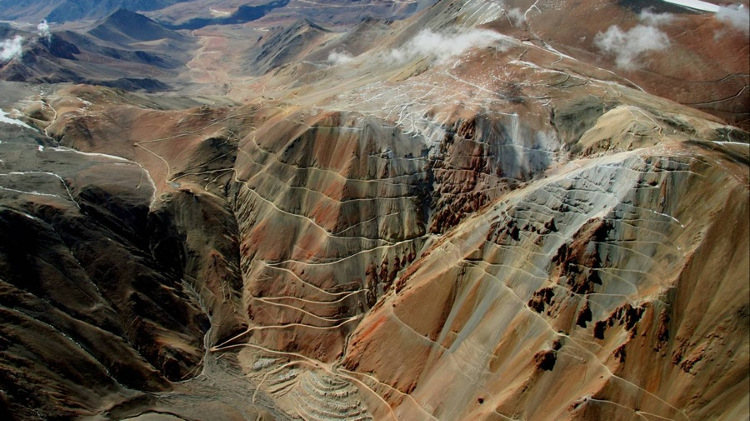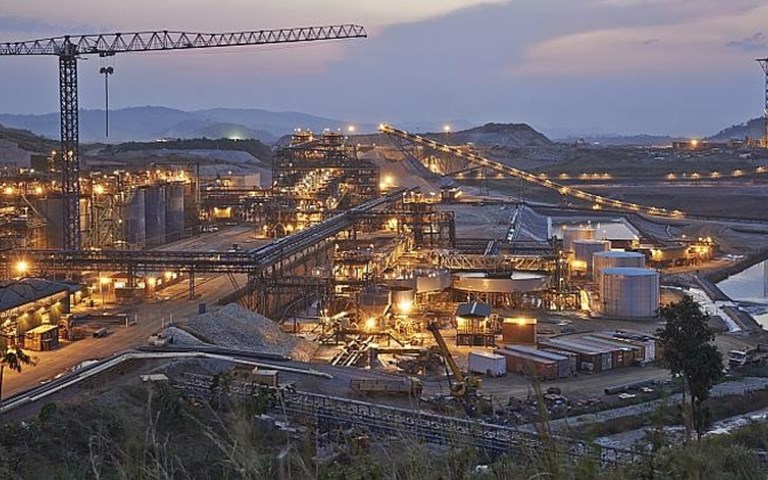Randgold CEO Mark Bristow threatened to take the Democratic Republic of the Congo to international arbitration over its new mining code. The company operates the Kibali mine, pictured, in the northeastern part of the country. Courtesy of Randgold
Welcome back to your weekly mining news recap. At the end of every week we’ll catch you up on the mining news from CIM Magazine and elsewhere that you might have missed. Among this week’s headlines: Northern Vertex ramps up at its Moss mine, Canada tables legislation to change the environmental assessment process for resource projects, and the first in our We Are Mining series.
*****
The Democratic Republic of the Congo’s new mining code isn’t sitting well with the country’s miners. Mark Bristow, CEO of Randgold – which operates the Kibali mine in the northeastern part of the country – said on Monday he would be prepared to take the Congo to international arbitration if the code is passed, according to the Financial Times. Robert Friedland, the founder of Ivanhoe Mines, which also operates in the country, said at Mining Indaba that he wasn’t concerned with the higher taxes promised in the new code “as long as that royalty goes to develop, help and empower local people.” The new code will increase royalties on copper, gold and cobalt, and remove a clause protecting miners for ten years from any changes to the country’s fiscal and customs regime.
British Columbia’s exploration community got some good news at the Association for Mineral Exploration’s (AME) Roundup 2018 conference: mineral exploration activity in the province increased by 20 per cent in 2017, the first annual increase since 2012. As we reported on Monday, this Roundup had some new features and a new face – Edie Thome, AME’s recently-appointed president and CEO – who wants to “modernize the image of mineral exploration and mining.”
On Tuesday we launched the first story in our year-long series We Are Mining, which will profile the women, Indigenous people and people of colour working in mining, and report on issues important to them. PDAC award-winning consultant Lana Eagle spoke with us about her work, how mining can be a part of reconciliation, and what it takes to have a truly inclusive workplace.
The International Minerals Innovation Institute gave a total of $1 million in funding and in-kind contributions to five projects aimed at increasing the number of women and Indigenous people in mining. As we reported on Tuesday, the winners of the Saskatchewan-based institute’s first-ever “diversity and inclusion” challenge include Women in Mining and Women in Nuclear Saskatchewan, the University of Saskatchewan’s College of Engineering and the Saskatchewan Mining Association.
Vancouver-based miner Northern Vertex Mining announced on Tuesday it had stacked about 7,800 tons of ore on its recently completed leach pad at its Moss mine in Arizona, and production is ramping up to an initial stacking rate of 2,500 tons per day. “As piping on the heap leach pad has commenced and the refinery furnace is to be commissioned next week, we look forward to reporting our first gold pour,” company CEO Kenneth Berry said in a news release.
Weeks after Barrick Gold was ordered by the Chilean government to close all the surface facilities at its Pascua-Lama project in the Andes, the company said it was recording a $429-million pre-tax impairment on the project. As we reported on Wednesday, Barrick also downgraded 14 million ounces of proven and probable gold reserves, which were based on an open-pit mine plan, to measured and indicated resources.
Canada is making sweeping changes to its environmental assessment process for resource and energy projects. All project assessments – which will now evaluate environmental, health, social and economic impacts – will go through a new government body, the Impact Assessment Agency, which will base its decisions on “robust science, evidence and Indigenous traditional knowledge,” environment minister Catherine McKenna said on Thursday. The government is also scrapping the National Energy Board for the new Canadian Energy Regulator, which will regulate pipelines but not perform assessments.
In what Business in Vancouver calls the “Lawsuit of the week,” a former Copper Mountain Mining millwright is suing the company for wrongful dismissal. Plaintiff Gordon MacMillan claims the company had a “highly poisonous work environment” where he and others were harassed and bullied. According to the notice of civil claim, filed in BC Supreme Court, employees who questioned or objected to company protocols were given a document called a “Hurt Feelings Report.”



